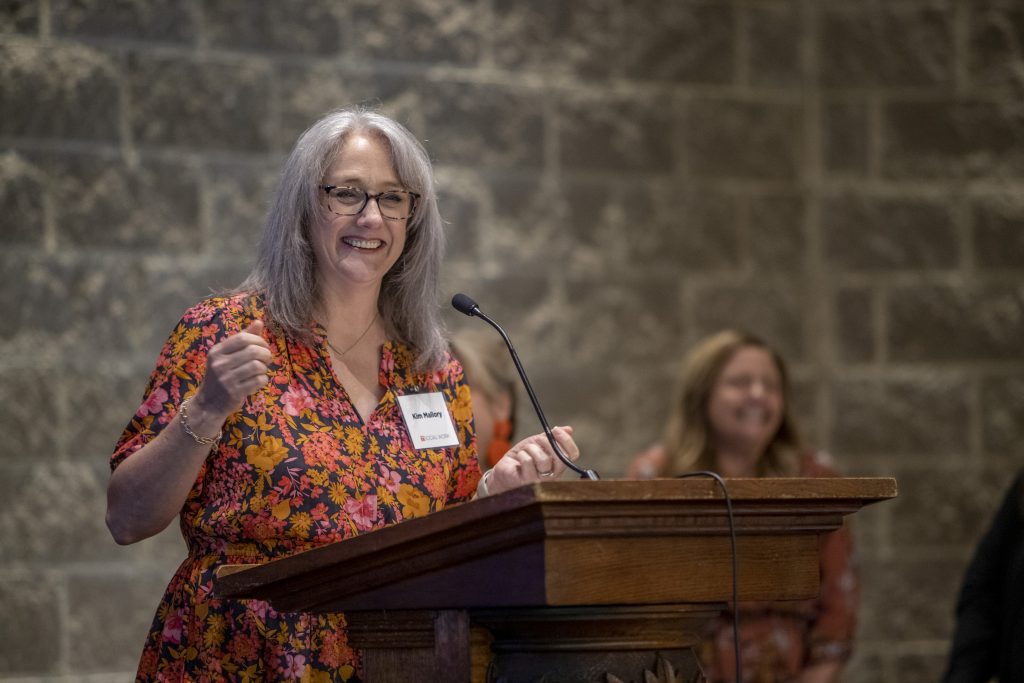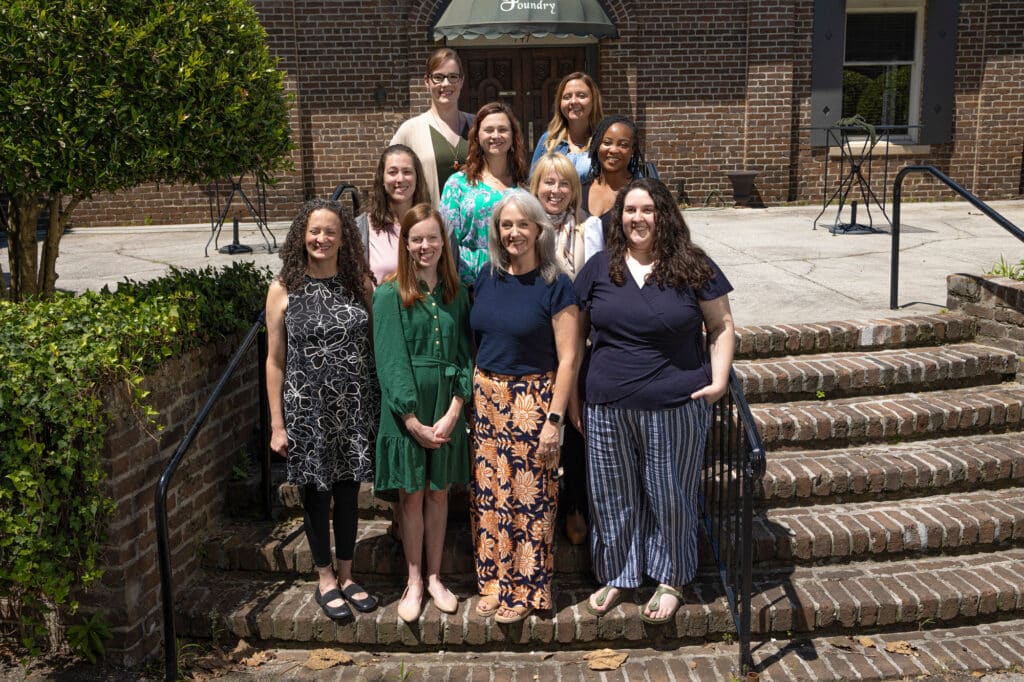
Director of Field Education and Professor of Practice Kim Crane Mallory discusses a marked increase in employment-based field placements (EBPs) which has made a big difference for Social Work students. Over 30 percent of all field students have a paid internship this year, a number which has nearly doubled from last year.
What do you see as a cause for the shift from unpaid to more paid?
There’s nothing like a major crisis (COVID) to show us a new way of doing things! CSWE changed the policy related to employment-based placements during COVID, which allows students who are working in appropriate roles in a social service agency to use their employment hours for placement. This change has been successful. Our college felt this was a social justice issue for our students and wanted to do all we could to promote this. We developed flyers, videos, and policies; and saw a huge increase in employment-based placement in just one year. We are also seeing a few more agencies offer paid internships as recruitment incentives for students.
Have students taken it upon themselves to ask for more paid placements?
We have policies in place that give students the opportunity to explore whether their employment in a social service agency can also serve as a field practicum.
Do you think the economy/rise in cost of living has played a factor?
Research shows that 63 percent of field coordinators said that field disruptions due to agency funding or staff turnover are increasing, while 65 percent of students said the pandemic negatively affected finances. Additionally, there proves to be a disproportionate financial burden for BIPOC students. So, several factors have come into play with the changes we are seeing.
-Council on Social Work Education (CSWE) (2020) Social Work Student Perceptions: Impact of COVID-19 Pandemic on Educational Experience and Goals. Alexandria, VA: CSWE.
-Council on Social Work Education. (2018). Field education survey. Final report. Alexandria, VA: CSWE. https ://www.cswe.org/getattachment/05519 d2d-7384-41fe-98b8-08a21682ed 6e/State-of-Field-Education-Survey-Final-Report.aspx.
How have the Field Coordinators played a role in this increase?
Field Coordinators are out in the communities, talking with new and existing agencies about this opportunity and have found agencies to be very responsive. They meet with the students and agencies to make sure everyone is clear on the resources, expectations, and requirements before the placement can be approved. They are also promoting this among students in the field seminar and in their meetings with students. They created policies and guidelines related to EBPs and provide ongoing support to assure stability in a student placement. Field Coordinators are utilizing their relationships with agencies to encourage them to develop paid internships in addition to supporting EBPs.
What advice would you give existing students who might want to explore a paid position?
First, this is primarily for students who are already working in a social service agency. Secondly, we want students to remember that field is a CLASS, and we want student learning and growth to be the goal. That can be challenging in a job, so students will need their agency to be fully on board with them being a learner and that their agency field supervisor is ready to be in the role of a teacher with them. This may mean that they might engage in other parts of the agency and in things that would normally fall outside of their job. We also remind students that employment-based placements come with some risks—if students lose a job or decide to leave the job, then they have also lost their practicum, and this can delay their progression through the social work program. As the signature pedagogy of social work education, field is where students become professional social workers, so we want to make sure their practicum is challenging and leads to growth so that they can be skilled, ethical social workers upon graduation.
Anything else you would like to add?
This change in policy gives us such a great opportunity to recruit new students who have significant work and life experience to bring to the college. Practicum requirements have been a major barrier to many skilled people returning to get their degree.
I am so proud of the Field Coordinators’ hard work on the processes for this and the legwork with the students and agencies to make this a reality. What a difference this is making for our students!

